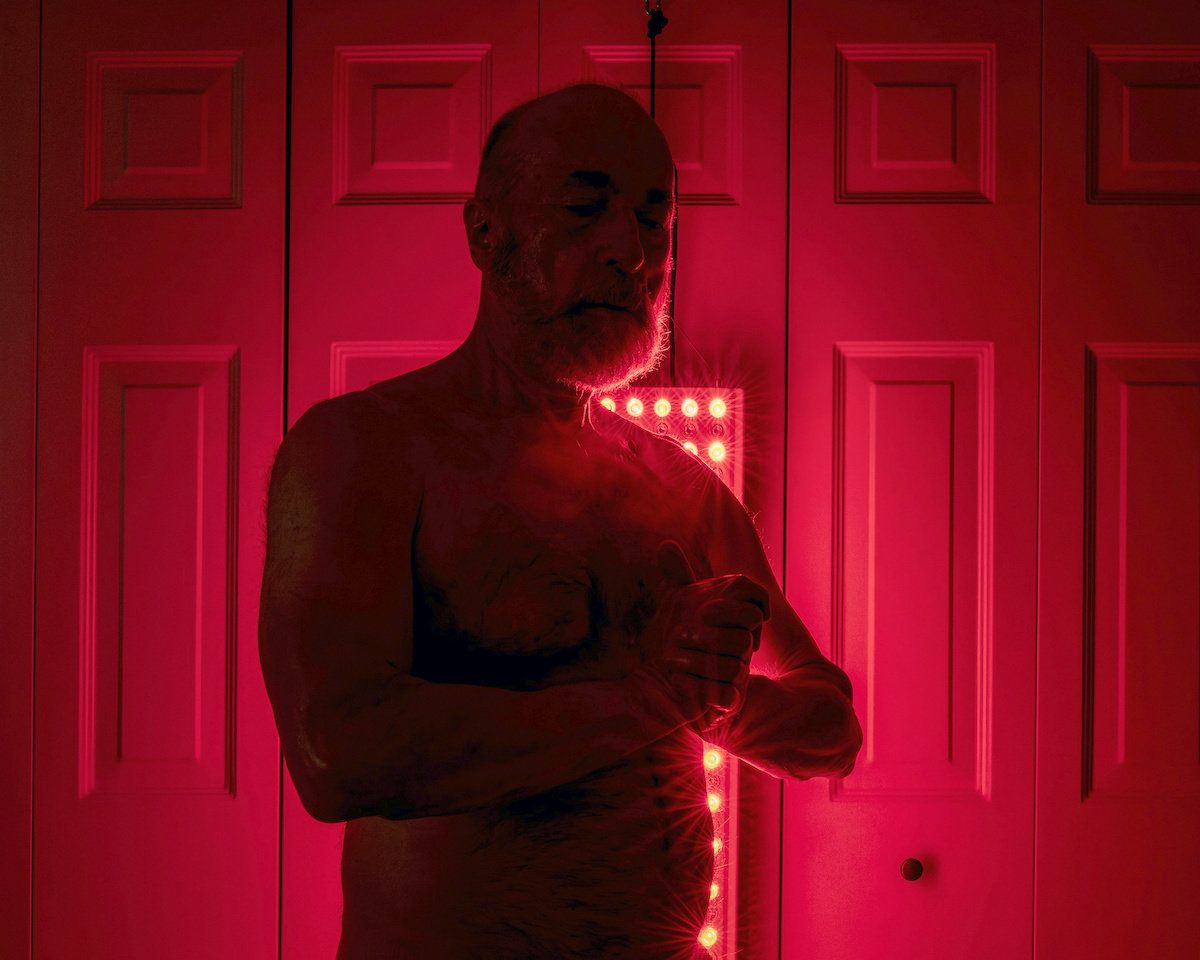
- Researchers are reporting that light therapy might help improve sleep and psycho-behavioral symptoms in people with Alzheimer’s disease.
- They say that current pharmacological treatment can include side effects and increase the risk of falls while light therapy usually does not have side effects.
- Experts said light therapy is a promising potential treatment for Alzheimer’s and dementia.
Light therapy might improve sleep and psycho-behavioral symptoms for people with Alzheimer’s disease, according to a study just published in the journal PLOS ONE.
Controlled-study research findings were gathered from 15 high-quality studies published between 2005 and 2022. They were performed in seven countries and included a total of 598 participants. Meta-analysis results indicated that light therapy in people with Alzheimer’s and dementia can be beneficial in several ways:
- Improved sleep efficiency – the ratio between the time a person is actually asleep, and the total time dedicated to sleep (i.e how long a person is in bed).
- Increased inter-daily stability – a measure of the strength of circadian rhythms, or how consistent daily activity patterns are.
- Reduced inter-daily variability – a measure of disruption of circadian rhythms, or how frequently someone transitions between rest and activity during the day.
In people with Alzheimer’s, the researchers said light therapy also reduced depressive symptoms and agitation as well as lowering caregiver burden.
“Up to 90 percent of persons living with Alzheimer’s disease will experience behavioral or psychological symptoms of dementia, including agitation, physical aggression, and depressive behavior,” said Dr. Liron Sinvani, the director of geriatric hospitalist services at Northwell Health in New York who was not involved in the research.
Sinvani continued, “In addition, sleeping difficulties can start in the early stages of Alzheimer’s disease and continue throughout the disease course. These behavioral and psychological symptoms, as well as sleep disturbances, can impact not only the health of the person but also cause significant caregiver burden and stress.”
Current treatments vs. light therapy for Alzheimer’s disease
“We know that behavioral and psychological symptoms are currently commonly treated with antipsychotic or sedating medications, which have been shown to increase the risk of falls, pneumonia, and even death,” Sinvani said. “Non-pharmacological strategies such as musicare considered first-line therapies.”
While the researchers found that light therapy had many benefits, they did note that bright light in some environments could increase depressive and anxiety symptoms as some people could perceive it as invasive and unnatural.
Overall, the scientists stated that light therapy significantly improves sleep and psychobehavioral symptoms in people with Alzheimer’s and that it is a promising treatment for this disease.
The researchers indicated the following limitations of the study:
- Types and degrees of dementia were inconsistent in the different studies.
- A few articles did not clearly describe their randomization, showing possible bias.
The future of light therapy: Nonetheless, experts say light therapy is something that should be looked at closely as a helpful potential treatment for Alzheimer’s disease. Light therapy may lead to significant improvement in sleep and behavioral symptoms of dementia. In addition, light therapy was found to have very few side effects.Source: adapted from an article by Eileen Bailey —Fact checked by Jill Seladi-Schulman, Ph.D.; https://www.medicalnewstoday.com/articles/light-therapy-may-help-improve-symptoms-of-alzheimers-disease












